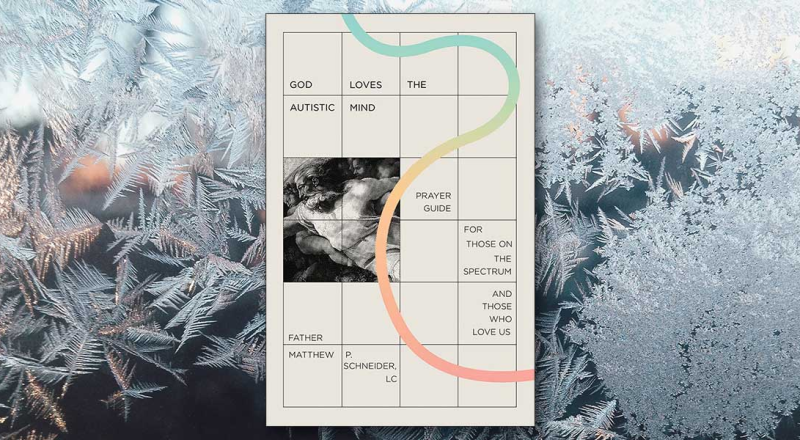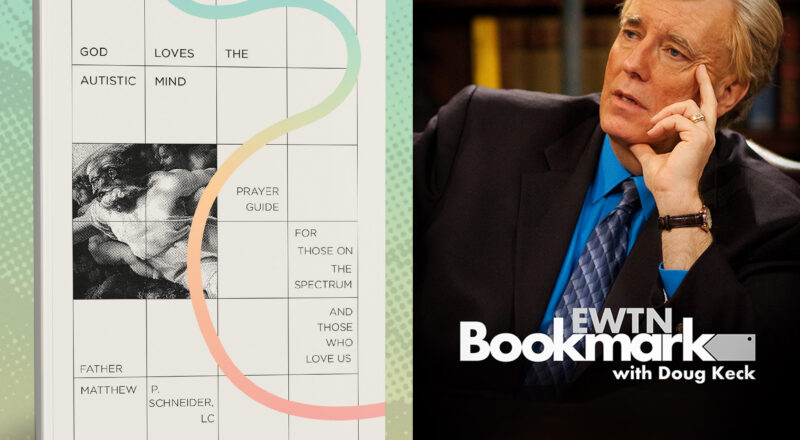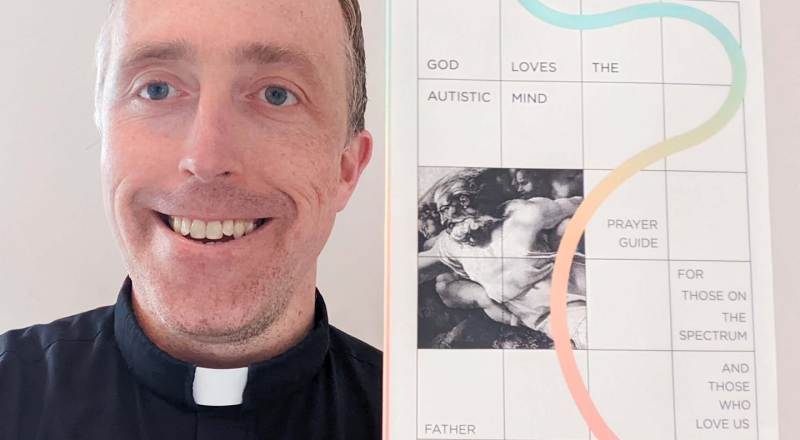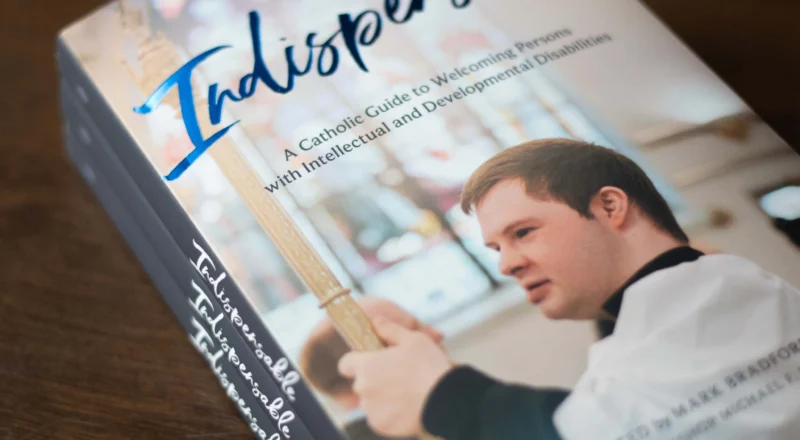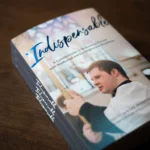Brian T. Olszewski of Catholic News Service recently posted a review of my book: God Loves the Autistic Mind: Prayer Guide for Those on the Spectrum and Those Who Love Us. He generally liked it but had one criticism that I admit is likely fair. Order my book here.
Olszewski begins:
When one seeks guidance about how to improve in a particular sport, it is preferable to get it from someone who has played that sport. When one seeks guidance regarding an addiction, one who is well into recovering from it is an excellent resource.
Thus, it makes sense for autistic people and their families seeking better ways to pray to get direction from an autistic person, especially when the person giving it is a Catholic priest. That is how Father Matthew P. Schneider, a member of the Legionaries of Christ, sees his goal in writing “God Loves the Autistic Mind.”
A few notes in the middle:

In the first part of the book, Father Schneider provides an overview — primarily by comparing and contrasting how autistic people and neurotypicals think and how knowing this is critical to their prayer lives. He familiarizes readers with words, e.g., stimming, that are an integral part of the autistic mind. […]
While the first part reads like a research paper, complete with footnotes, the second part of “God Loves the Autistic Mind” is engaging, as it includes 52 mediations, several of which include the personal stories of autistic people, including the author’s, a Scripture passage and a reflection. Topics include “Jesus Loves Me as an Autistic,” “From Loneliness to Being Alone with God” and “Remain Watchful in Our Own Lives.”
I hope it was not too much like a research paper. As someone who took a break from writing a doctoral thesis to write this book, I was definitely going for a different style.
He concludes with his summary and critique:
This first attempt is important because of the autistic faithful for whom it was written. However, tighter editing, e.g., elimination of the frequent and distracting use of “I think,” would have made it a better book. Nonetheless, it is eye-opening for neurotypicals and one that autistic people might find affirming in their prayer lives. As Father Schneider writes: “We need to avoid stigmatizing autism and recognize that autistics are called to be and can become saints.”
I had said “I think” a few times in the book to indicate where I was somewhat certain but not certain enough to say the point without qualification. I search my own PDF and got 156 times – about 2 times every 3 pages – which is probably a little too much. I guess I have something to work on for the next book I write (although my next book is likely an academic book on the ethics of informational privacy which will be denser).
You can read the rest of Olszewski’s review in the link. I link to Florida Catholic media as CNS is primarily a wire service for diocesan papers. Order God Loves the Autistic Mind here.

